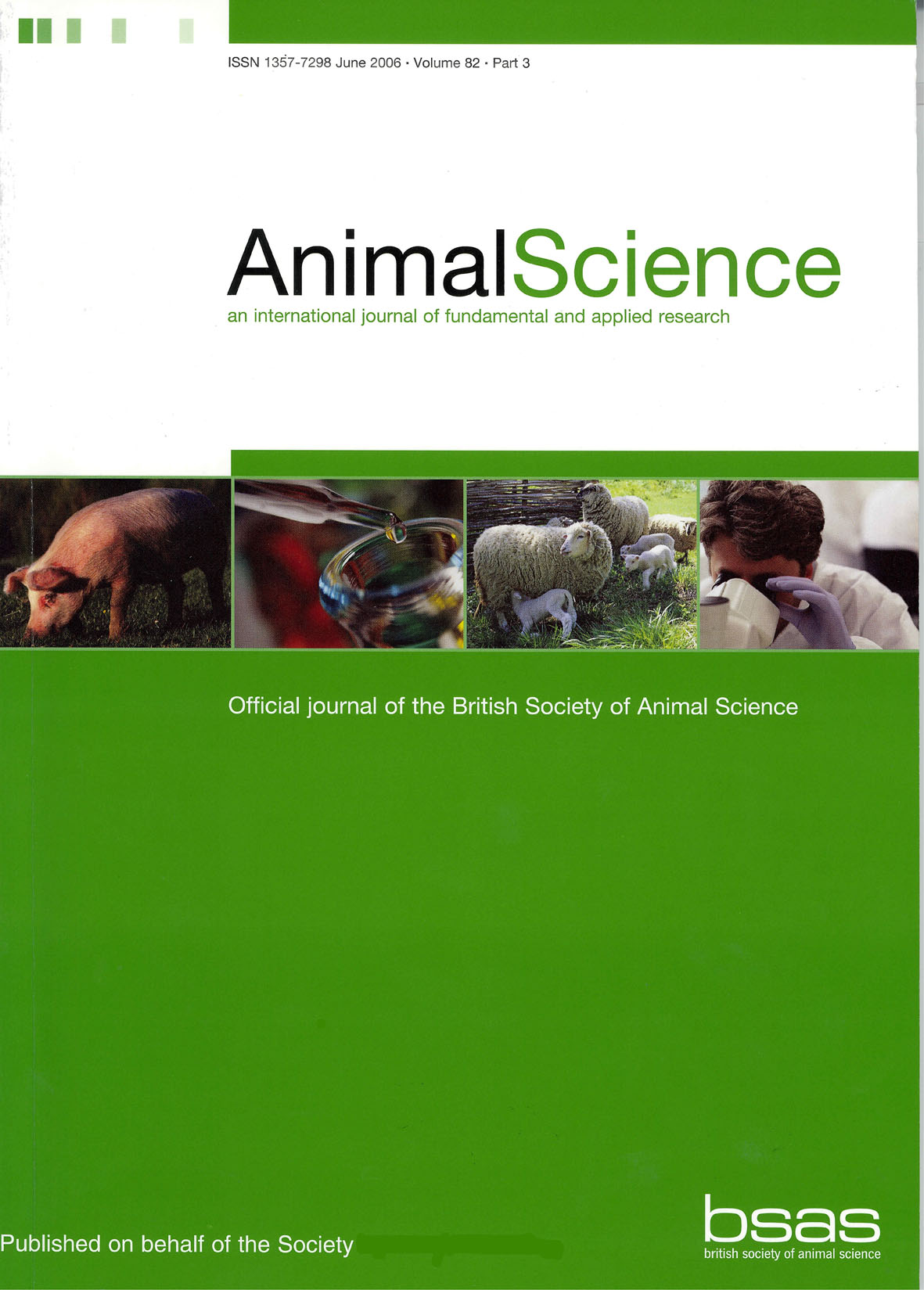Article contents
Effects of ardacin supplementation on food intake and growth rate of growing and finishing steers
Published online by Cambridge University Press: 02 September 2010
Abstract
Ardacin is an antibacterial glycopeptide with ruminal activity. The objective of this study was to measure its effects on food intake and growth rate of growing and finishing steers. Two experiments were carried out simultaneously using the same foods and the same ardacin supplementation levels. In experiment 1, 72 growing steers (8 months old and 240 kg initial weight) in four treatment groups were individually offered a basal diet of grass silage ad libitum. In experiment 2, 44 finishing steers (19 months old and 463 kg initial weight), also in four treatment groups were individually offered a basal diet of grass silage ad libitum plus 3 kg (5 kg for the final 28 days) concentrates per head daily. The four treatments were 0, 50, 125 and 210 mg ardacin per head daily incorporated into 1 kg ground barley. This was offered in addition to the basal diet. The duration of the experimental period was 154 days after which 48 of the growing steers were put to pasture for a 196-day grazing season. The finishing steers were slaughtered following a withdrawal period of 7 days. Mean daily silage dry-matter intakes, and mean daily total metabolizable energy intakes for the treatments as listed above were 4·91, 5·15, 5·10 and 5·03 (s.e. 0·083) kg and 63, 66, 65 and 65 (s.e. 0·7) MJ (experiment 1), and 5·63, 5·62, 5·51 and 5·54 (s.e. 0·059) kg and 108, 108, 107 and 107 (s.e. 0·4) MJ (experiment 2), respectively. In the same order, mean daily live-weight gains during the treatment period were 612, 758, 784 and 798 (s.e. 25·2) g (experiment 1) and 911, 942, 851 and 860 (s.e. 40·0) g (experiment 2). In the growing steers proportionately 0·64 of the weight response to ardacin was retained to the end of the following grazing season. It is concluded that ardacin supplementation increased live-weight gain and improved the efficiency of conversion of food to live weight in growing steers but had no significant effect on finishing steers in this study.
Keywords
- Type
- Research Article
- Information
- Copyright
- Copyright © British Society of Animal Science 1995
References
- 1
- Cited by


